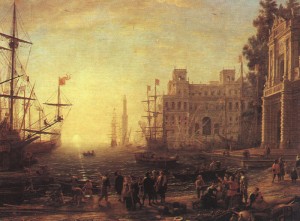 A call for papers has just been announced for the Port Cities in the Early Modern World, 1500 – 1800 conference to be held on the 5th – 7th November, 2015, Philadelphia, PA, co-sponsored by the McNeil Center for Early American Studies, the Program in Early American Economy and Society, and Temple University.
A call for papers has just been announced for the Port Cities in the Early Modern World, 1500 – 1800 conference to be held on the 5th – 7th November, 2015, Philadelphia, PA, co-sponsored by the McNeil Center for Early American Studies, the Program in Early American Economy and Society, and Temple University.
In the early modern period, advances in maritime technology redrew the global map—not only through the “discovery” of new worlds, but by reorienting patterns of commerce and migration to transform what had been peripheries into vital nodes of exchange, power, and culture. Port cities rose to occupy a critical space, mediating between their own hinterlands and an oceanic world of circulation and exchange. Highly local institutions and networks influenced and reacted to global networks and the movements of people, goods, fashions, ideas, and pathogens. This conference will explore comparisons and connections among ports in the age of sail. Through broadly comparative papers and revealing case studies this conference provides a forum to explore comparisons and contrasts, diversity and congruence, competition and emulation, among far-flung port cities on a global scale. Among the topics the organizers hope to explore are socio-political organization, economic and labor patterns, and cultural productions
We seek proposals from scholars at all stages of their careers. Committed participants include Christopher Hodson, Richard Kagan, Willem Klooster, Christian Koot, Kris Lane, Ty Reese, Philip Stern, and David Wheat.
Paper proposals should include an abstract of no more than 500 words and a one-page curriculum vita. Papers, which will be pre-circulated, should be approximately 7,500 words in length. Please e-mail paper proposals tomceas@cccat.sas.upenn.edu by September 15, 2014. All queries should be sent to the conference organizer, Jessica Choppin Roney (roney@ohio.edu). The program committee will reply by December, 2014 and some support for participants’ travel and lodging expenses will be available for paper presenters.










Comments are closed.